Attorney uses photography and storytelling for legal empowerment

Photo of Deborah Espinosa by Anna Ream LLC
Deborah Espinosa calls it the hour that changed her life.
In 2014, the Seattle attorney needed to fulfill her CLE requirements and found an American Civil Liberties Union program on the growth of modern-day debtors’ prisons. She was intrigued because as far as she knew, there were no debtors’ prisons in this country.
ACLU attorney Vanessa Hernandez told a different story, one that featured Washington courts sentencing criminal defendants to fines, fees, costs and restitution that accrued interest at a rate of 12% from the moment of their conviction through each day of their incarceration.
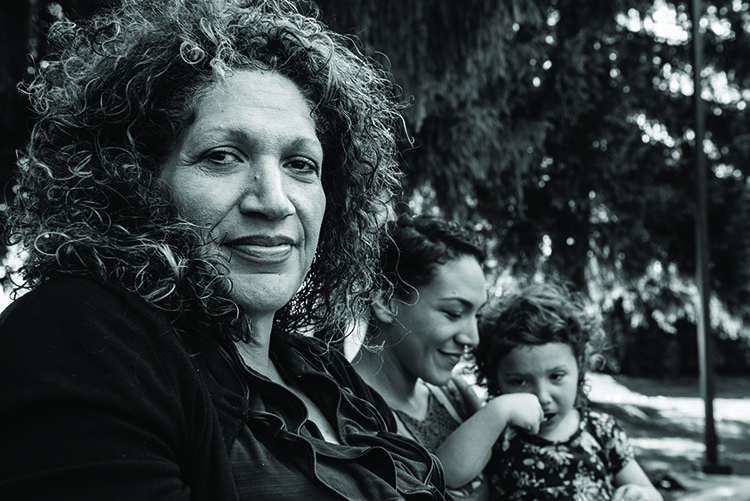
Carmen Pacheco-Jones of Spokane, Washington, is pictured with her daughter Jasmine and granddaughter Aria. Pacheco-Jones has been out of jail for nearly 20 years, but she still owes $6,000 of court debt. Photo by Deborah Espinosa.
Once defendants were released, they had about 30 days to make their first payment on these legal financial obligations, or LFOs. And if they missed any payments on what often amounted to thousands of dollars, they could be found in contempt of court and face another arrest.
“I was offended to my core,” Espinosa says. “I also felt like I’m part of the system as an attorney, and this just isn’t right. This particular policy disproportionately impacts people of color and the poor, and it perpetuates cycles of poverty and incarceration.”
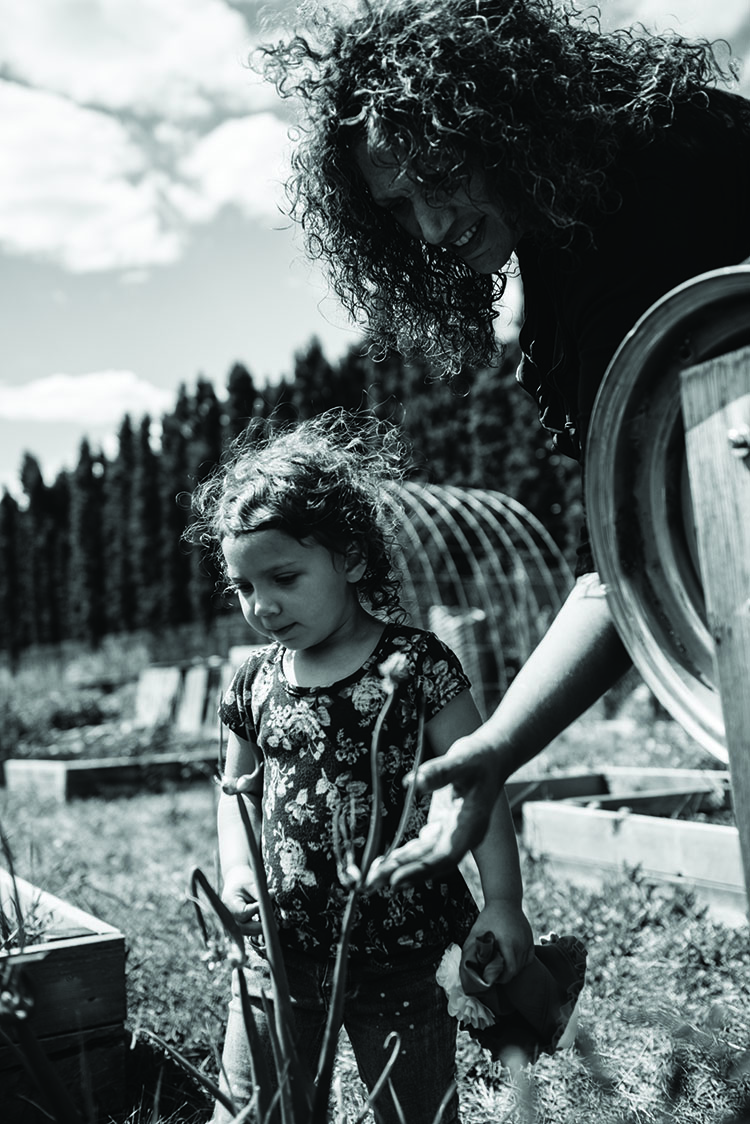
Carmen Pacheco-Jones of Spokane, Washington, is pictured with her daughter Jasmine and granddaughter Aria. Pacheco-Jones has been out of jail for nearly 20 years, but she still owes $6,000 of court debt. Photo by Deborah Espinosa.
Espinosa, who had experience using visual storytelling for legal advocacy, spent the next year and a half researching the issue and connecting with nonprofit organizations that introduced her to formerly incarcerated individuals who wanted to share their stories.
In 2016, she introduced Living with Conviction: Sentenced to Debt for Life in Washington State, a series of recorded interviews and photographs that demonstrate how Washington’s court-imposed debt—and its interest rate—impact these individuals’ efforts to successfully reenter society. Photographs from that exhibit can be seen on the following pages.
Carmen Pacheco-Jones, a grandmother from Spokane, Washington, appears in the series. Pacheco-Jones grew up in an abusive home and then in foster care.
She was pregnant and addicted to drugs by age 17 and had her first adult conviction by 18. After dozens of arrests for drug possession and related charges over the next 15 years, she realized she could lose permanent custody of her five children. She stopped using, went back to school and got a job in public health.
Pacheco-Jones still struggles under the weight of her LFOs. She owes more than $6,000 of the $40,000 of debt she left jail with nearly 20 years ago. She was moved by Espinosa’s empathy for those in similar situations and believes they can create awareness and change through her project.
“Debbie has such a beautiful worldview and especially when it comes to women’s rights and equity and justice. She has a unique ability to tell meaningful stories in such a manner that is authentically inspiring,” she says.

Common ground
Espinosa began cultivating her view of the world as a research assistant with the Rural Development Institute, now Landesa, a nonprofit organization based in Seattle that partners with governments around the world to secure land rights for the poor.
“Overseas there is a significant legal-empowerment-of-the-poor movement going on,” Espinosa says. “It attempts to make the justice system accessible to the poor as well as the elite through a bottoms-up approach, helping people know what their rights are and helping people exercise those rights.”
Attorneys at Landesa encouraged Espinosa—who was working on her master’s degree in Russian, East European and Central Asian studies at the University of Washington—to pursue her growing passion for legal reform.
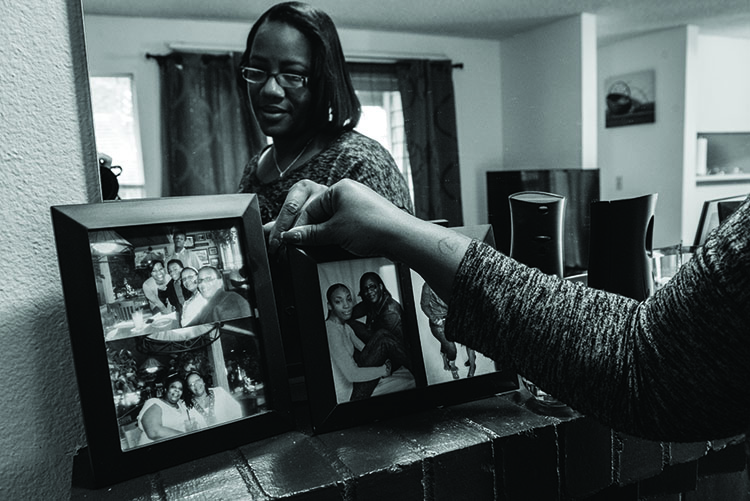
Keshena Williams of Tacoma, Washington, regrets how her legal financial obligations affect her children. “They suffer, too.” Photo by Deborah Espinosa.
She graduated from the University of Washington School of Law in 1998 and worked as a staff attorney for Landesa, including in Moscow, where she provided legal technical assistance on land legislation and managed two legal aid offices for a year.
Espinosa wanted more legal experience, so she clerked for Judge Anne Ellington of the Washington Court of Appeals and worked for the U.S. Department of the Interior’s Office of the Solicitor in Washington, D.C. She also practiced environmental and natural resources law with Marten Law Group in Seattle for four years before wanting a change. That change materialized at the Rocky Mountain School of Photography in Missoula, Montana, where she rekindled a childhood love of photography and realized she could use her dual skills in a return to legal reform.
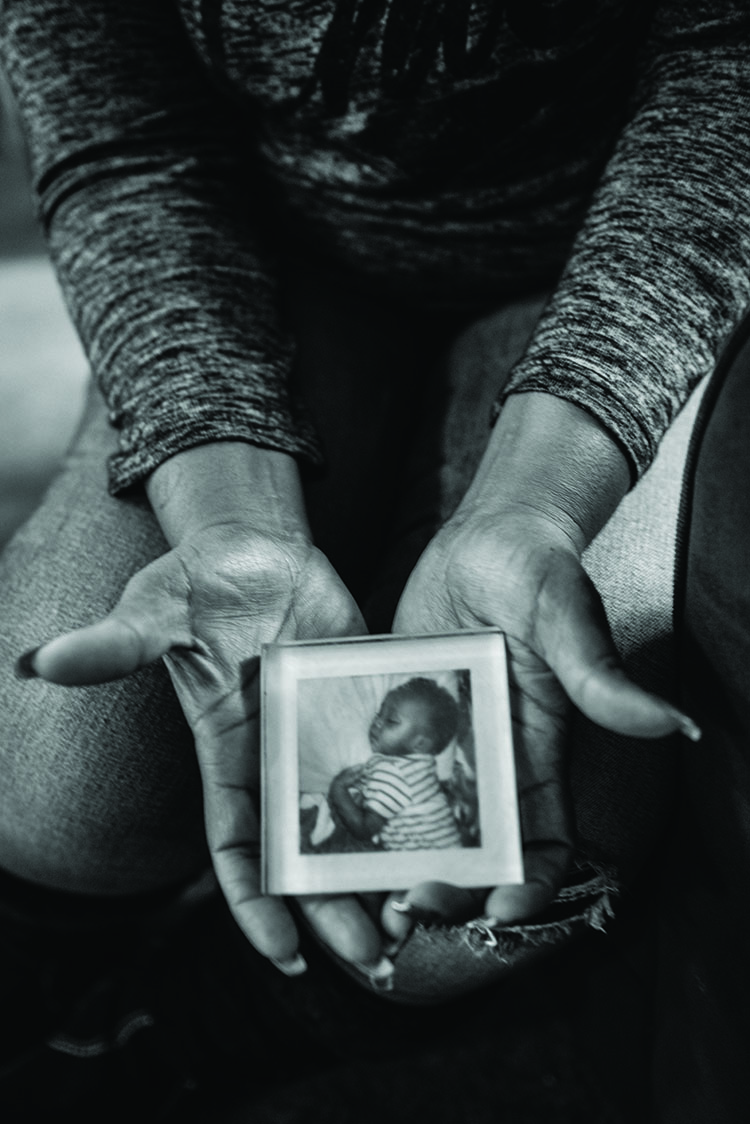
Keshena Williams of Tacoma, Washington, regrets how her legal financial obligations affect her children. “They suffer, too.” Photo by Deborah Espinosa.
She rejoined Landesa as a senior attorney and staff photographer in 2006 and spent the next seven years managing the organization’s programs in Africa and western Asia. She talked often with farmers and others in rural areas about their land rights and advised governments on how to draft new laws or revise existing ones to address their concerns.
As part of the communications team, Espinosa also illustrated the common humanity of people she met through photo essays and short films. In one of those films, she showed how the Maasai and Kalenjin communities in Kenya shifted from banning women’s leadership and rights to electing 14 female elders who resolved land disputes alongside male elders.
“That is one of my main missions, to elevate and amplify the voices of poor and marginalized people and communities,” says Espinosa, who now works as a consultant for Landesa. “Not speak for them—they are not voiceless; it’s just their voices do not often have platforms.”
Equal opportunity
Espinosa looked to her experience with Landesa as she became involved with a coalition of state and community groups advocating for the elimination of the 12% interest rate on LFOs in Washington. In 2018, they finally succeeded.
The new law not only removes the interest rate for newly convicted and formerly incarcerated individuals on all LFOs except restitution, but it also stops interest from accruing while an individual is incarcerated.
But the law doesn’t apply retroactively, and formerly incarcerated individuals who want to waive accrued interest on nonrestitution LFOs must petition the court.
“I was frustrated, because if you look at our system and the way it’s structured, it presupposes access to an attorney in order to exercise any of your rights,” says Espinosa, a member of the ABA Civil Rights and Social Justice Section. “It’s nobody’s job in the system to tell you what the rights are, and that is a fundamental flaw.”
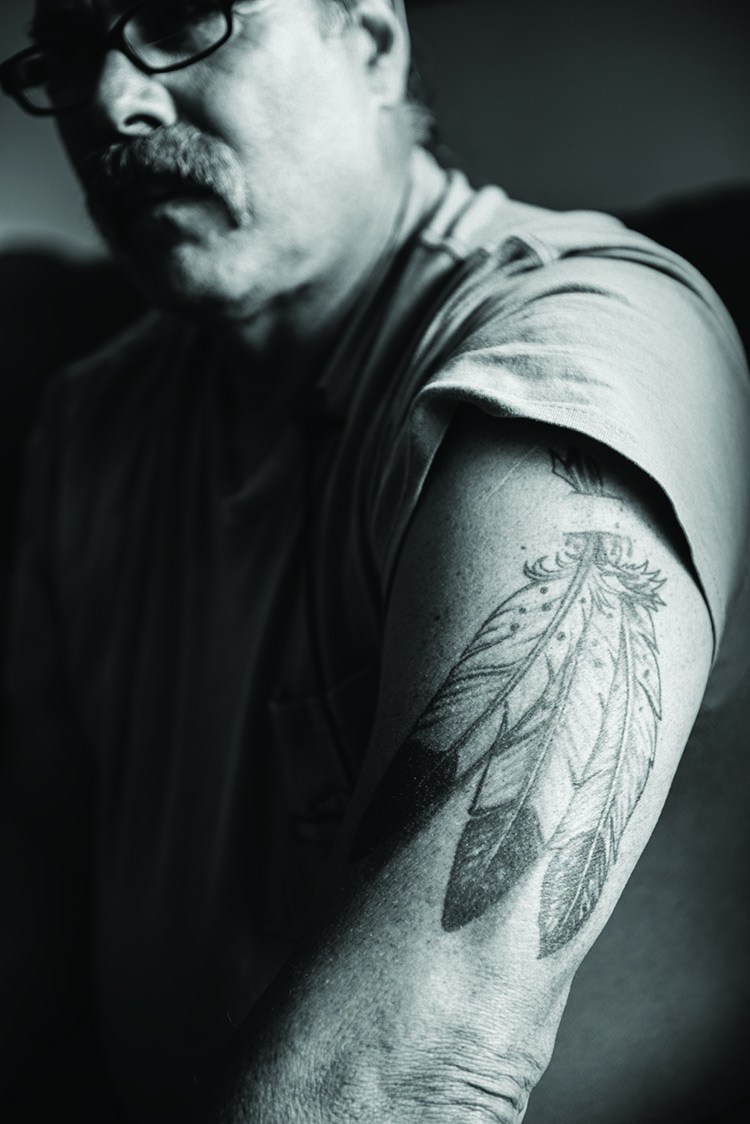
Michael Shoemaker had thousands of dollars of court debt erased at a legal financial obligations “reconsideration day” last year, Deborah Espinosa says. Photo by Deborah Espinosa.
Espinosa teamed up with Anna Bosch, a former King County prosecutor and an affiliate instructor at the University of Washington School of Law, to address that problem.
They created a “training of the trainers” curriculum to empower formerly incarcerated individuals to prepare and file these motions.
It also empowers them to share that guidance with their peers.
“The waiver of the interest in particular lent itself really well to doing that kind of training, because the law makes it clear that once the motion is made, the court shall grant it,” Bosch says. “It’s a perfect opportunity.”
Espinosa and Bosch asked judges and attorneys in King and Snohomish counties to provide feedback on their curriculum, and with support from the Legal Foundation of Washington and American Bar Endowment, conducted the first trainings as part of a pilot project earlier this year.
Espinosa also continues to organize photography exhibits and community conversations with formerly incarcerated individuals in Washington. She received a grant from We, Women, a project that supports female artists, and she hopes to capture more experiences of the Latino population.
“As long as people are suffering under this law, the storytelling is going to continue,” she says. “This is what I did at Landesa. It’s personalizing, humanizing the ‘other’—which I actually don’t believe in. Everyone is the same and wants the same thing for our children and our communities. That’s what the photography does.”
This article was originally published in the April/May 2020 issue under the headline, “True Conviction: Deborah Espinosa uses photography and storytelling for legal empowerment.”
Correction
Print and initial web versions of "True Conviction," April-May, should have credited Anna Ream LLC with the photograph of Deborah Espinosa.The Journal regrets the error.




